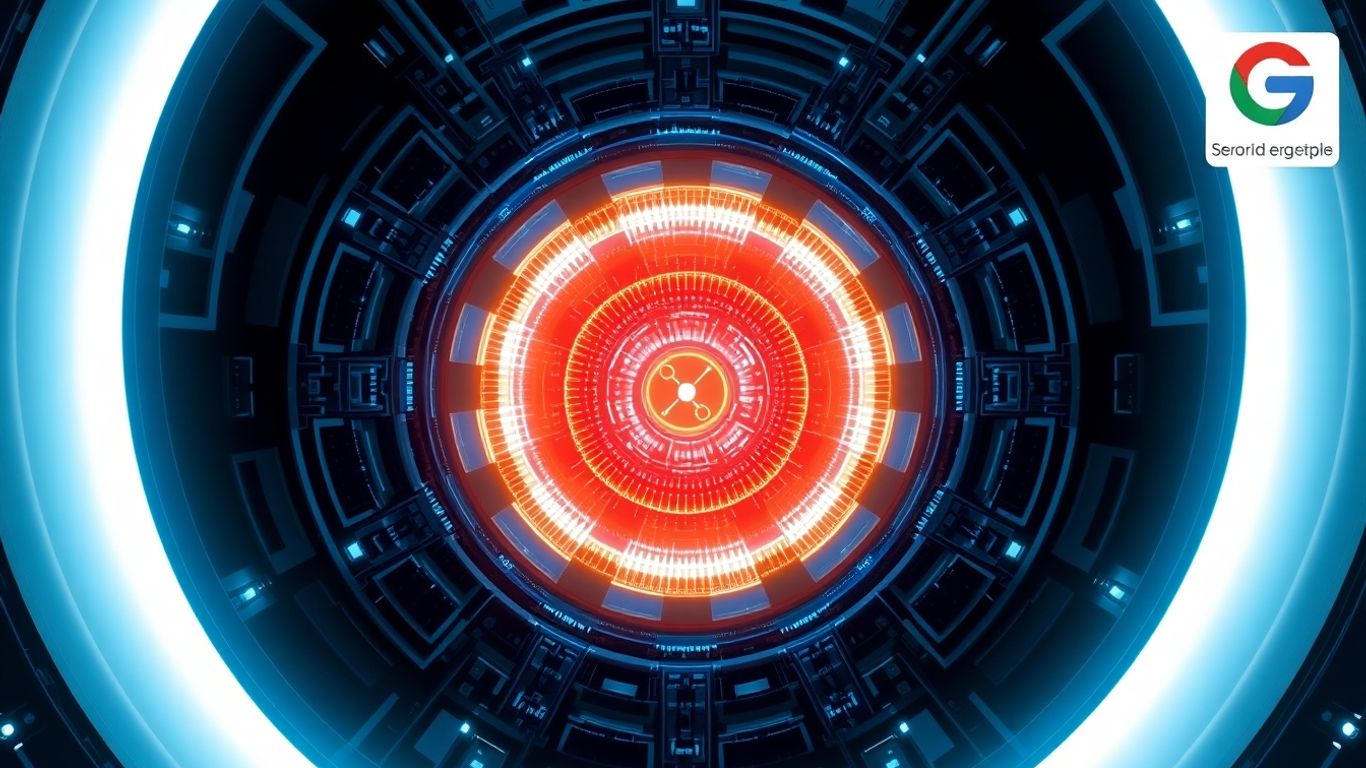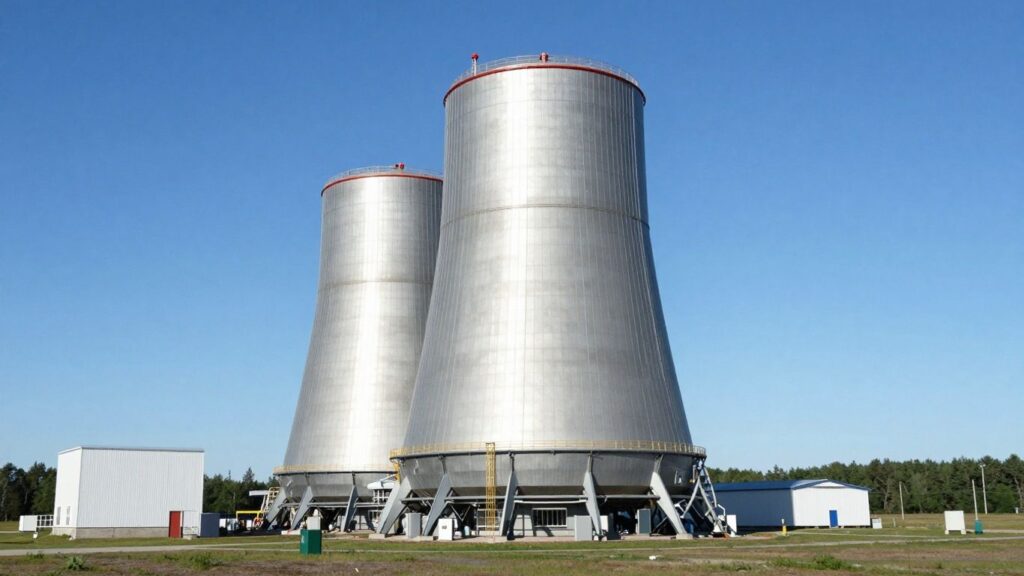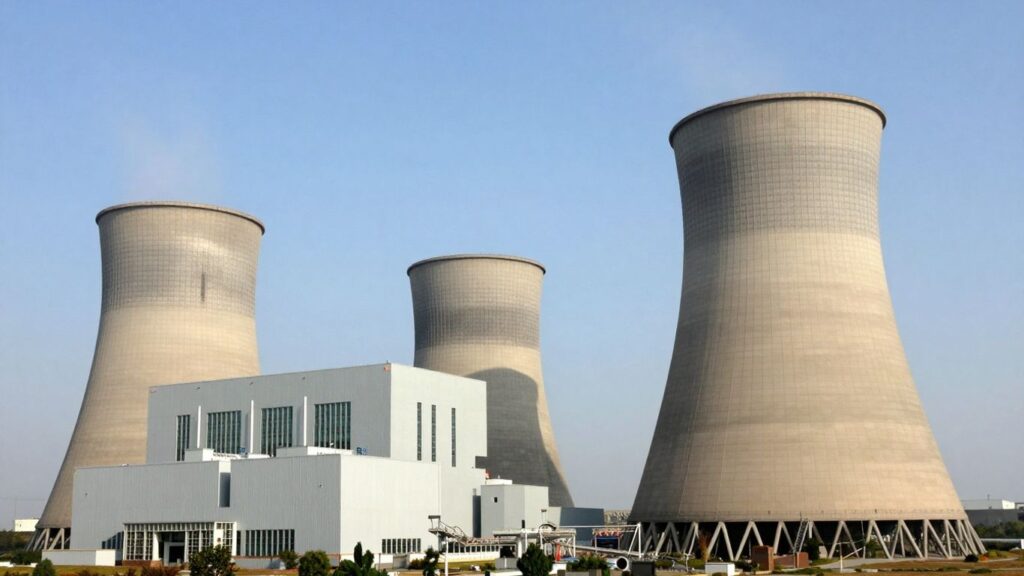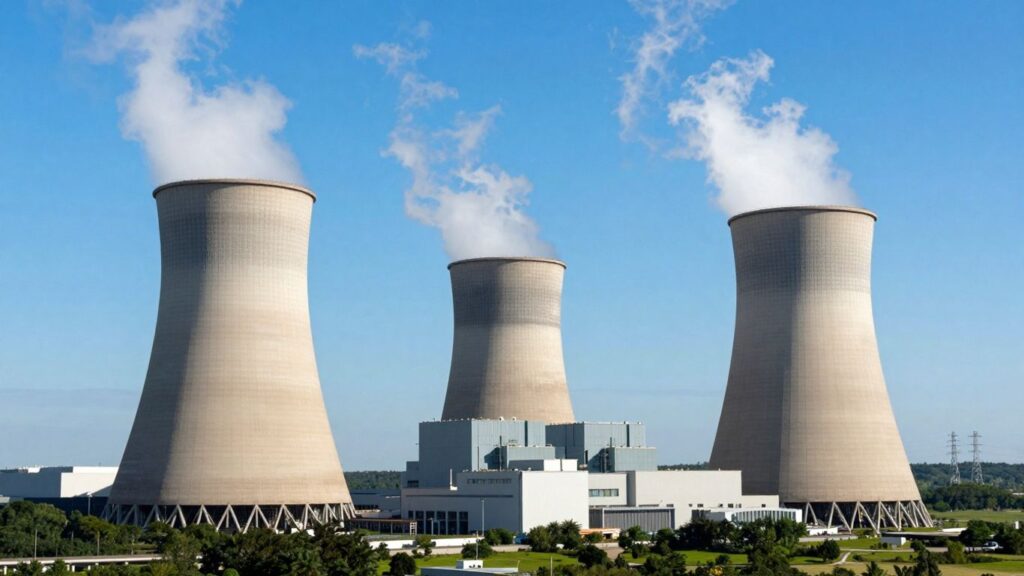In a significant move for the clean energy sector, tech behemoths Amazon and Google have announced substantial investments and partnerships aimed at developing and utilizing small modular reactors (SMRs). This dual commitment signals a growing trend among major technology companies to secure reliable, carbon-free power sources to meet the escalating energy demands of their data centers, potentially reshaping the future of nuclear energy.
Key Takeaways
- Amazon and Google are investing in the development and deployment of Small Modular Reactors (SMRs).
- These investments are driven by the need for clean, reliable energy to power data centers.
- The deals represent a significant boost for the commercialization and scaling of SMR technology.
Amazon’s Expanded Nuclear Bet
Following Alphabet’s (Google’s parent company) recent foray into nuclear energy, Amazon.com Inc. is deepening its commitment. While Amazon already had an agreement to utilize power from an existing nuclear reactor, the company announced a new partnership to support the construction of new small modular reactors. This move further solidifies Amazon’s embrace of nuclear power as a critical component of its energy strategy.
Google’s Landmark SMR Deal
Alphabet Inc., through Google, has entered into a groundbreaking agreement with Kairos Power to develop 500 megawatts of nuclear power by 2035. This first-of-its-kind deal will see Google purchase power from seven SMRs that Kairos is constructing, with the first unit targeted for delivery in 2030. Kairos Power’s SMR design features a molten-salt cooling system, differentiating it from traditional water-cooled reactors. Google views this partnership as crucial for achieving its net-zero and 24/7 carbon-free energy goals, highlighting the potential of SMRs to provide clean and affordable power to communities.
The Rise of Small Modular Reactors
Small modular reactors represent a new generation of nuclear technology designed to be more cost-effective and quicker to build than traditional large-scale nuclear power plants. Their components are manufactured in factories and then assembled on-site, streamlining the construction process. The increasing interest from major tech companies like Amazon, Google, and Microsoft, which has also made deals to secure nuclear energy, underscores the growing recognition of SMRs as a viable solution for meeting the substantial and growing electricity demands of artificial intelligence and data centers.












